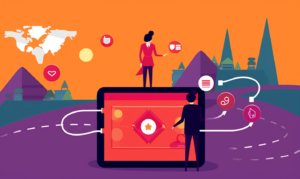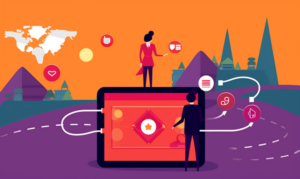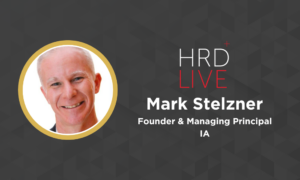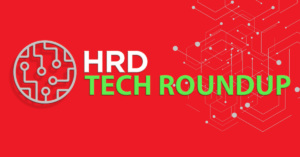How to use predictive analytics for tangible business insights: Hani Nabeel, Founder, iPsychTec
- 5 Min Read
In this installment of our Tech Founders series, Hani Nabeel, Founder, iPsychTec, tells HRD Connect how predictive analytics and advanced diagnostics can provide powerful insights with tangible results for any business.
- Author: Michael Hocking
- Date published: Aug 28, 2019
- Categories

What is the true potential of HR and how can technology help us to achieve it?
In this installment of our Tech Founders series, Hani Nabeel, Founder, iPsychTec, tells HRD Connect how predictive analytics and advanced diagnostics can provide powerful insights with tangible results for any business.
What is iPsychTec?
iPsychTec is the leading people analytics and behavioural science company. At iPsychTec we combine the best elements of scientific and applied research to create revolutionary products/solutions which provide significant and tangible value add to organisations. Our products provide ground-breaking diagnostics, deliver advanced predictive analytics and actionable business insights to help organisations achieve sustainable competitive advantage.
Our products are based on the largest ever behavioural research study over a seven year period, with in excess of 51,000 participants in 61 countries across 60 organisations and supported by three leading business schools.
We have three core products.
CultureScope is an award winning and ground-breaking product which quantifies the culture of an organisation using advanced diagnostics, by assessing individual and organisational behaviours (how do I behave and what do I observe around me) and linking these with organisations’ outcomes to provide predictive analytics and actionable insights to drive the business forward, reduce risk and generate sustainable value. The predictive analytics work in both directions; behaviours to outcomes and outcomes to behaviours.
TalentScope is a unique online tool which brings together assessment of “fit for job” using a competency-based framework and “fit for culture” and situationally relevant leadership for recruitment, succession planning and talent development.
TeamScope provides the ability to understand how event driven behaviours manifest in teams; to improve situational awareness, manage complexity and resolve conflict thereby enhancing teamwork for minimising risks and driving performance. This is achieved by using airline simulators for practical flying tasks and challenges instead of theoretical, classroom based case studies or training.
Our cloud-based applications use the best of behavioural science, mathematical modelling, statistical analysis and cloud computing to deliver best in class applied people analytics.
Why was it necessary to create iPsychTec?
CultureScope is our hero product. It is universally recognised that corporate culture is one of the most critical levers for creating shareholder value by aligning strategy with culture and talent, thereby driving organisation performance and minimising risk. Yet culture is the one element that most organisations fail to empirically measure and track and, therefore, they underutilise this important lever.
Organisations have been reliant on lagging qualitative measures (engagement surveys, sentiment surveys, individual interviews) assessing current sentiments or opinions. Whilst improving employee engagement can be a powerful force for driving organisational performance, engagement tends to rise and fall quickly in response to transient business choices, which affect employee feelings. The resulting information only gives a partial view on what is really happening in the business. What if we were to use quantitative behavioural diagnostic and take a more predictive, insightful and actionable approach?
It is critical to measure an organisation’s culture through individual and organisational behaviours (and not feelings/sentiments) and linking these behaviours (leading indicators) to business outcomes (lagging indicators) to generate predictive analytics and provide actionable insights to the CEO and senior executive team. These insights, combined with the business strategy and KPIs help improve business performance, reduce risk and generate sustainable value. For CEOs to provide effective leadership and direction to the business, it is vital that they understand the cultural gap between their present and desired organisational culture and have the insights to understand, change and then embed an organisation’s desired culture to achieve sustainable competitive advantage. Using this approach gives CEOs and leadership executives the ability to unlock the full potential of their organisation by measuring and understanding the hidden drivers underpinning their culture, ensuring a true alignment with the business strategy and talent.
We are driven by the belief that culture should be the hero and not the villain, which it has been for far too long!
Why is HR technology crucial to the success of a business?
HR technology is now the key for any organisation to deliver strategic objectives by using the power, capabilities, insights and applied predictive analytics afforded by smart deployment of technology. People analytics is an important and rapidly growing component in any HR tech strategy. In fact, people analytics is going mainstream but, as with any technology adoption, there’s more to this than meets the eye. For instance, there are significant skills shortages which HR functions must develop to maximise the opportunity. Technology alone will not be enough and people and analytics capabilities could become the limiting factor.
How can an organisation most effectively implement new HR technology?
Using cloud computing provides for the most efficient and speedy implementation plan. Cloud computing further enables connected people analytics (through APIs) to provide predictive analytics helping organisations improve business processes, organisational design, talent management and agile working.
Organisation can also test new HR technologies using established cloud hosting environments to mitigate cyber risks while leveraging the ability to test start-up applications.
Above all, HR should lead the way in embracing new HR technology without fear and, to the contrary, leverage its capabilities to deliver tangible and significant insights and value. Training/upskilling will be a key imperative in achieving this.
What do you think is the biggest challenge affecting organisations today?
You only have to look at the daily news to recognise that organisational culture is the biggest issue today! We recognise that “the future of work” is a hot topic but without understanding the role that culture plays in any organisation, most leaders will struggle to successfully drive any transformational change!
Which emerging technologies do you think will transform HR in the future?
Artificial intelligence and automation. The combination of AI and automation can provide a seamless approach for data collection, data analytics and driving key insights to help in decision making to drive sustainable organisational improvements.









